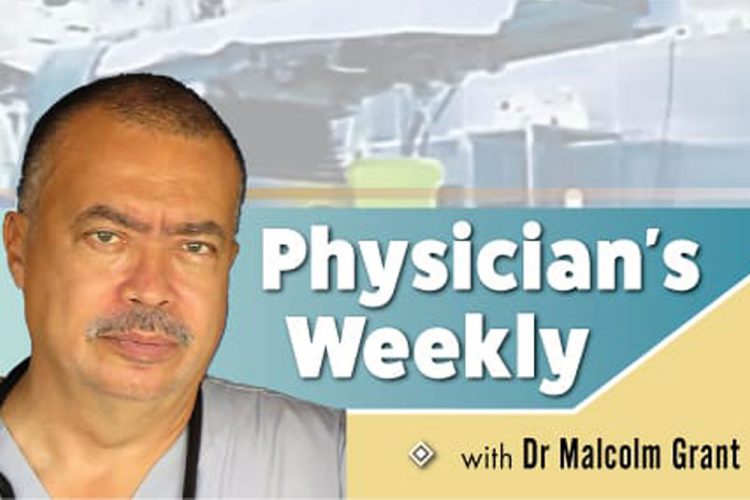Anxiety is a symptom of many medical disorders

Q: I have been told by doctors that my anxiety is all in my head. But I have read that sometimes anxiety can be caused by something else. What are some conditions that can cause anxiety?
A: Anxiety is an emotion in which a person generally experiences tension, and worrisome thoughts. It may be accompanied by physical changes such as an increase in respiratory and heart rates, an elevation in the blood pressure and tremors. Additional symptoms can include muscle tension, headaches, abdominal cramps, nausea, and diarrhoea.
During stressful times it is quite natural to become anxious. However, some individuals may feel anxious day in and day out, for no apparent reason. Such persons are often deemed to be suffering from generalized anxiety disorder when such anxiety persists for six months or more.
In the case of secondary anxiety, the anxiety experienced is not the primary issue, rather it is secondary to another or an underlying medical disorder.
Secondary causes of anxiety need to be considered if any of the following is present:
- It is recent onset
- It came on suddenly
- There is no family history of anxiety or mental disorders
- There is no identifiable reason for one to be anxious
- You are more tired and or drowsy than normal
- There is accompanying disorientation or loss of memory
- The level of anxiety is very variable
- The onset of your symptoms began in later life
- You recently stated a new medication (even supplements)
- You have other comorbidities
- There are abnormalities on your physical examination.
Below are listed some of the secondary causes of anxiety:
Medication/ Drugs:
- Oral and nasal decongestants
- Asthma meds – Salbutamol, albuterol, terbutaline, theophylline
- Caffeine – Coffee, tea, energy drinks, chocolate
- Cocaine use
- Marijuana abuse
- Anti-depressants – SSRI inhibitors
- Steroids – prednisone
- Amphetamines
- Medicines used to treat an underactive thyroid
- ADHD medicines
- Anti-epileptic medications
- Parkinson’s disease medications
- Herbal and other supplements
The withdrawal of:
- Nicotine
- Valium/ diazepam, Ativan/ lorazepam, and other benzodiazepines
- Beta blockers
- Alcohol
- Caffeine
- Narcotics
Heart & Lung Diseases:
- Mitral Valve Prolapse (MVP)
- Abnormal heart rhythms (arrhythmias)
- Heart failure
- High blood pressure
- Asthma
- Bronchitis
- Emphysema
- Pulmonary embolism
- Sleep apnea
Endocrine Diseases:
- Overactive thyroid (hyperthyroidism)
- Menopause
- Poorly controlled diabetes
- Hypoglycemia (low blood sugar)
- Carcinoid Syndrome
- Pheochromocytoma
- Hypoparathyroidism
- Adrenal dysfunction
Neurological Diseases:
- Migraine headaches
- Parkinson’s
- Brain tumors
- Seizures
- Head trauma (even mild)
- Alzheimer’s
- Multiple sclerosis.
Miscellaneous causes:
- Diets high in sugar or simple/ refined carbohydrates (e.g. white bread, white rice, pastries, sweet drinks, pasta, macaroni, breakfast cereals, processed snacks)
- Vertigo
- Tinnitus
- Chronic fatigue syndrome
- B-12 deficiency
- Irritable bowel syndrome (IBS)
- GERD/ Reflux, stomach/ duodenal ulcers
- Pancreatic tumors
- Autoimmune diseases (e.g. lupus, rheumatoid arthritis, vasculitis, ankylosing spondylitis, Chron’s disease)
- Chronic pain
- Fibromyalgia
- Electrolyte imbalance
- Endometriosis
- Polycystic Ovarian Syndrome (PCOS).
Finally, anxiety does not have to take the joy out of living. For with the appropriate lifestyle adjustments and interventions, pertinent and focused psycho and non-psychotherapy and carefully chosen pharmaceutical interventions, if and when necessary, anxiety can be adequately and satisfactorily controlled and treated in the vast majority of instances.
Author: Dr. C. Malcolm Grant – Family Physician, c/o Family Care Clinic, Arnos Vale, www.familycaresvg.com, clinic@familycaresvg.com, 1(784)570-9300 (Office), 1(784)455-0376 (WhatsApp)
Disclaimer: The information provided in the above article is for educational purposes only and does not substitute for professional medical advice. Please consult a medical professional or healthcare provider if you are seeking medical advice, diagnoses, or treatment. Dr. C. Malcolm Grant, Family Care Clinic or The Searchlight Newspaper or their associates, respectively, are not liable for risks or issues associated with using or acting upon the information provided above.









